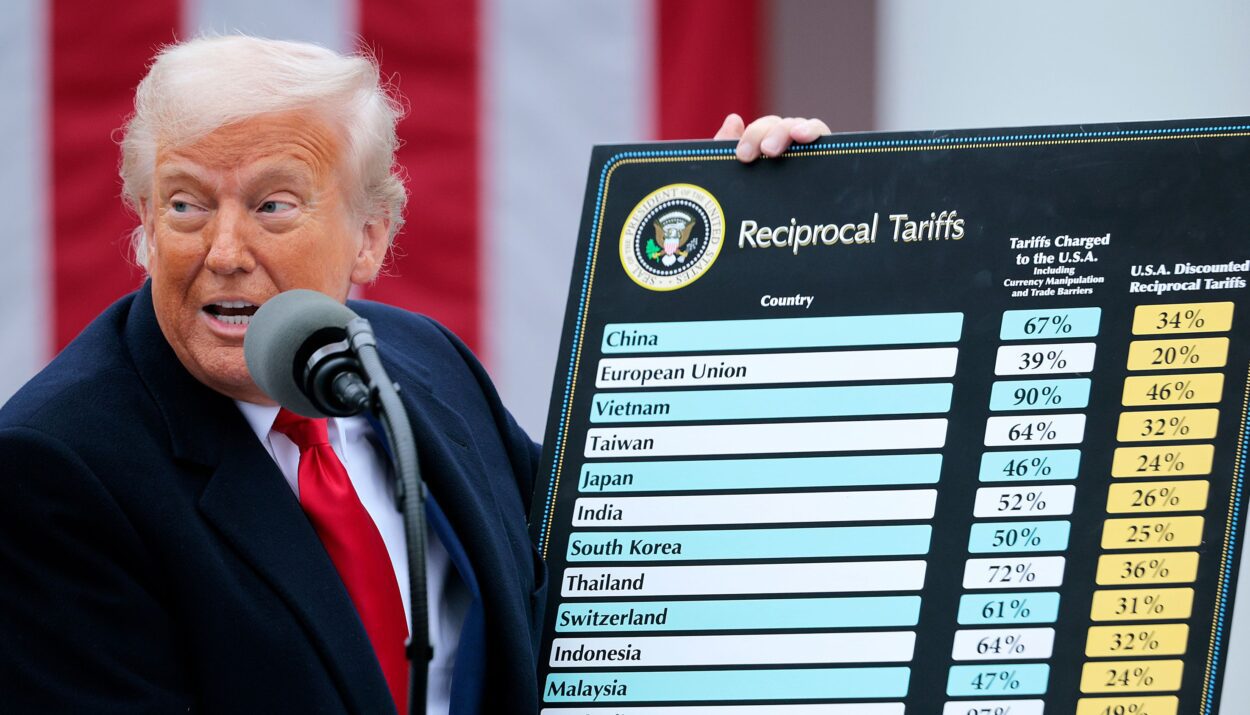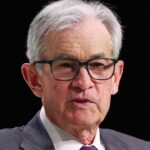A US federal trade court has struck down former President Donald Trump’s sweeping global tariffs, marking a major blow to his cornerstone economic strategy. The Court of International Trade ruled that Trump overstepped his authority by using emergency powers to unilaterally impose tariffs on nearly every US trading partner.
The decision emphasized that the US Constitution gives Congress – not the president – the power to regulate trade, and Trump’s use of the 1977 International Emergency Economic Powers Act (IEEPA) did not permit such wide-reaching duties. A panel of three judges said the law “does not give the executive branch the green light to act as a global trade arbiter.”
Two Key Legal Challenges
The ruling stems from lawsuits filed by:
- Liberty Justice Center, representing small importers affected by the tariffs.
- A coalition of US states, led by New York, challenging the impact on local businesses.
Notably, the court also blocked separate tariffs on China, Canada, and Mexico that were justified under border security claims. However, tariffs on steel, aluminum, and cars remain untouched, as they were enacted under a different law.
Political Reactions
- White House deputy press secretary Kush Desai criticized the ruling, saying:
“It is not for unelected judges to decide how to properly address a national emergency.” - New York Attorney General Letitia James, part of the lawsuit, responded:
“The law is clear: no president has the power to single-handedly raise taxes whenever they like.”
She warned the tariffs were effectively a massive tax hike on working families and would have worsened inflation and hurt jobs.
Market Response: Relief and Rally
Global investors welcomed the news:
- Asian markets rose overnight.
- US futures jumped.
- The dollar gained against safe-haven currencies like the yen and Swiss franc.
According to SPI Asset Management’s Stephen Innes, markets were “exhaling after weeks of white-knuckle volatility sparked by trade war brinkmanship.”
He added: “Executive overreach may finally have found its ceiling. And with it, a fresh dose of macro stability – at least until the next headline.”
What Happens Next?
While most tariffs were already suspended, the ruling forces the White House to begin formally reversing the duties within 10 days. Trump’s team says it will appeal the decision immediately.
If the appeal fails, US Customs and Border Protection will need to issue directives, and businesses that paid the tariffs may receive refunds – with interest.
However, as former CBP official John Leonard notes, nothing changes at the border yet. Tariffs must still be paid until all legal options are exhausted.
Background: How Did We Get Here?
Trump’s “Liberation Day” tariff regime, introduced on April 2, imposed:
- A baseline 10% tariff on most countries.
- Up to 145% tariffs on Chinese goods.
- Tariffs on the EU, UK, Canada, Mexico, and others.
He claimed the policy would revive American industry, but the global response triggered a wave of retaliatory tariffs, particularly with China, whose 125% tariffs on US imports nearly matched the US hike.
More recently, tariff truce agreements have been reached:
- US-China tariffs have fallen to 30% and 10%, respectively.
- UK and US agreed to tariff reductions.
Trump also recently threatened a 50% EU-wide tariff starting in June, though later extended the deadline after talks with EU Commission President Ursula von der Leyen.
Analyst Outlook
Paul Ashworth of Capital Economics noted that the ruling disrupts Trump’s fast-track trade deal ambitions. “Other countries will now likely wait and see how the US judiciary rules before committing to further trade concessions,” he said.
While the ruling is a setback for Trump’s aggressive trade stance, it may offer a more stable outlook for global commerce – at least temporarily.
Disclosure: This article does not represent investment advice. The content and materials featured on this page are for educational purposes only.
Related:
Trump orders US chip designers to stop selling to China
US Consumer Confidence Soars in May Amid Hopes for Trade Peace
Tesla Sales Crash 49% in Europe Despite EV Boom
Trump Threatens 25% Tariff on Apple as Foxconn Invests $1.5B in India
Trump Media Slams $3B Crypto Report as “Fake News”
China has quietly relaxed export restrictions on rare earth elements
Hedge funds are shorting stocks again, boosting leverage to new record
Trump says he’ll delay a threatened 50% tariff on the European Union until July
Angry Elon Is Back — And He’s Betting Big on Driverless Teslas and AI










